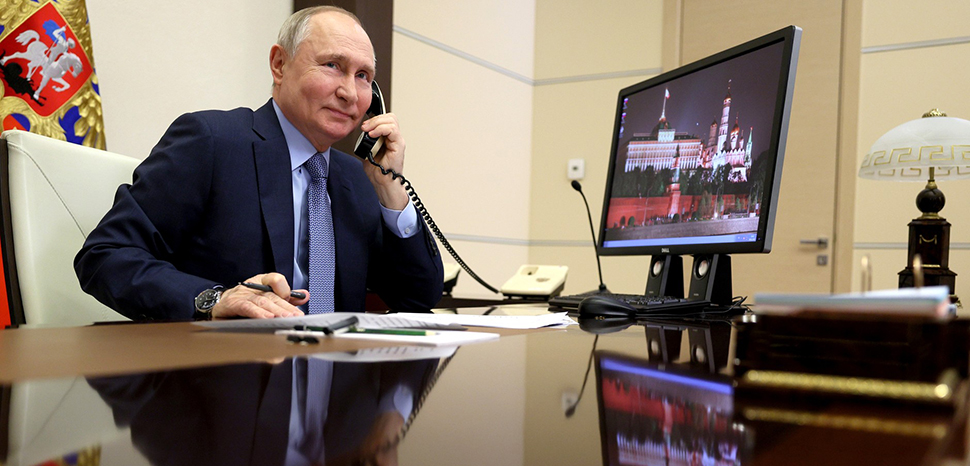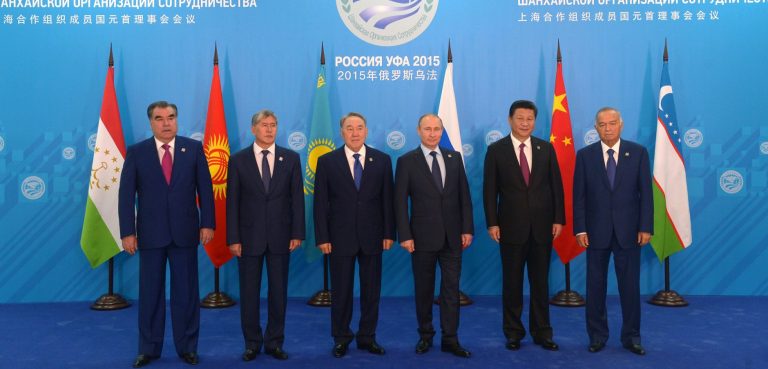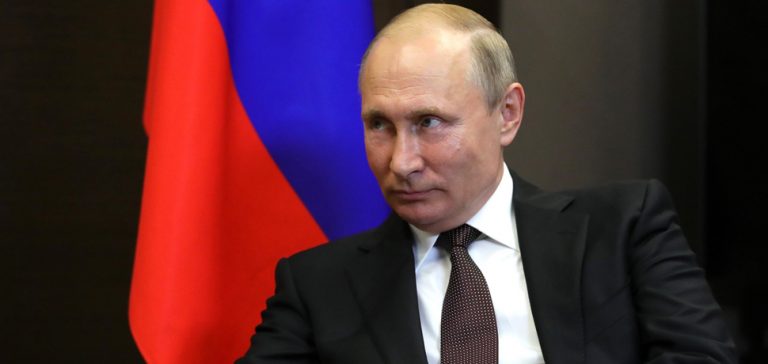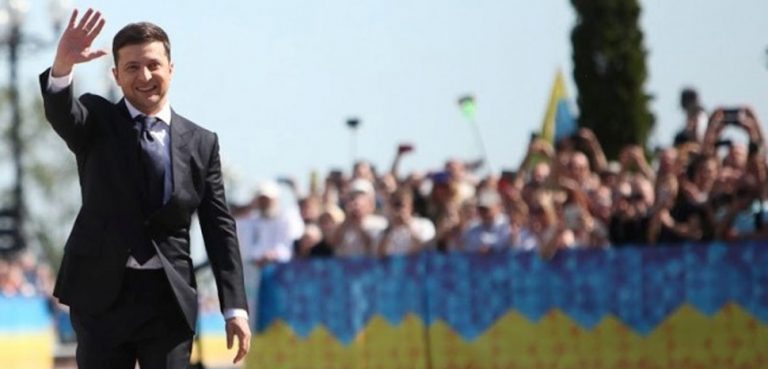It should come as little surprise that President Putin announced his bid for a fifth presidential term in Russia’s March 17 elections. It is equally unsurprising that Mr. Putin will probably evade arrest over his alleged responsibility for war crime charges related to the unlawful deportation and transportation of children levied by the International Criminal Court (ICC). Instead of prison, Putin will likely enjoy an electoral victory and the continued immunity that it brings on the indictment’s anniversary.
While the arrest warrant created legal and diplomatic hurdles for the Kremlin, it has also aided Putin’s survival domestically and advanced Russia’s union with Washington’s adversaries. Although the indictment is legally justified, it is practically unattainable because arrest and extradition – while not impossible – remain highly improbable. Coupled with economic sanctions, global asset forfeitures, and cultural prohibitions, the indictment serves as another example – in legal form – of the comprehensive political, economic, and social isolation imposed by the West. Putin touts these measures as the existential struggle between the Russian people and the West to garner political support at home and abroad.
The indictment’s implications extend beyond the legal risks to Putin by introducing diplomatic costs that are irritating and isolating Moscow from Western capitals. Mr. Putin has since limited his international travels to Western nations and those that are party to the Rome Statute. Notably, he skipped out on the BRICS Summit in Johannesburg out of fear of arrest and extradition. But the Kremlin’s world hasn’t shrunk entirely, and the implications are largely inconsequential for the Russian president personally. As the door to the West closed, another has opened to the East.
Contrary to its intent, the warrant all but ensures Putin’s continued reign and Russia’s enduring pivot toward the East. Putin’s meetings with North Korean and Iranian leaders inside Russia, coupled with his recent trip to China, illustrate Moscow’s budding relationship with Washington’s foes. His tour around the Middle East shows that even the West’s partners value the Kremlin’s friendship.
The West has little leverage to isolate Russia from Iran and North Korea, whose values and human rights records are far more egregious than Moscow’s. China will not be convinced to roll back their friendship with Moscow as Beijing benefits from their energy deals. And the West’s Gulf allies – who have appalling human rights records of their own – are keen on taking less direction from Washington and are willing to cooperate with Moscow on energy, trade, and defense. Thus, Moscow is broadening its relationship with nations who share its values and economic interests, as well as who view Washington as being hypocritical.
The ICC’s indictment still poses some degree of risk to Putin’s freedom. He faces the remote chance of arrest and extradition to The Hague if he travels outside of Russia without explicit assurances of his safety. But a looming threat of arrest and extradition while traveling is highly unlikely if he remains president. The Kremlin will ensure any trips exclude the 123 countries obligated to enforce the Statute while he remains in power. His praetorian guard and Russia’s intelligence service are obligated to protect him while he is head of state.
Of greater concern is the possibility of any arrest and extradition attempts inside his own borders. Although this remains highly unlikely, it still poses a lingering threat to Putin personally should he be ousted from power. Both scenarios are added motivation to stand for and win re-election.
Otherwise, a loss exposes the potential that a coalition government of political opponents might use their electoral victory as an opportunity to exile him to The Hague. Thereby eliminating Putin as a political opponent, signaling a break in Russia’s adversarial foreign policy, and achieving a strategic rapprochement with the West in one move. Observers point to then-Yugoslav President Milosevic’s extradition to the International Criminal Tribunal for the former Yugoslavia (ICTY) as an example to support this scenario.
This comparison ignores important details. Legally, Russia’s constitution prohibits extradition of any citizens, let alone former presidents. Any democratic leaning government would be hard pressed to allow such a move, as tempting as it might be, since extradition would surrender Moscow’s sovereignty to an international body. This would dent Russia’s power and prestige, signal weakness, and be interpreted as an embarrassment by its citizens. Such a decision might usher in more problems, risking the opposition’s coalition and mandate. Observers forget that Milosevic’s extradition was a highly controversial event in post-conflict Yugoslavia, one that caused a rift in the Democratic Opposition of Serbia (DOS) and aided the eventual fall of the coalition government.
More importantly, commentators overlook the fact that Yugoslavia had no alternative but to cooperate with the Tribunal. The international community maintained substantial leverage over Belgrade, which was subjected to some of the harshest sanctions measures after a decade of war – and as a result, required economic relief, development aid, and political support for a European Union future, contingent on cooperation with the Hague.
Russia’s current reality is nowhere near that of Yugoslavia’s. The international community lacks the same leverage and Russia is neither entirely isolated nor hampered by the current sanctions regime. A non-existent and jailed opposition cannot form a coalition let alone provide a political alternative. Even if he lost, there is no assurance of a new government being significantly democratic or Western leaning.
The arrest warrant will continue to isolate Putin, and Russia by extension, from the West. This will lead to a small, albeit noticeable, decline in international influence. But that may be the indictment’s biggest success given the unlikely chance of arrest. Still, Putin’s de facto persona non grata label will not curtail all of Moscow’s diplomatic strength, as evidenced by the growing ties between Moscow, Tehran, Beijing, and other capitals.
Just as economic sanctions have not changed Russia’s decisions toward Ukraine, the ICC’s indictment will not force Putin’s arrest. So long as he remains wanted in the West, Russia will continue its attempts to strengthen its influence with like-minded nations elsewhere to offset the relative loss of influence as the door to the West remains shut.
The lingering indictment will continually motivate Putin’s need to stay in power. His predecessors’ political careers are not a suitable scenario for comparison. Unlike Yeltsin – who received political assurances and a tacit pardon for his excesses – or Gorbachev – who oversaw the Soviet Union’s dissolution – Putin will not resign. This means that the indictment, inadvertently, re-enforces Putin’s prevailing resolve to win the upcoming elections in 2024, and most likely in 2030.
Therefore, Western policymakers need to consider the implications of a Russia led by a wanted and unwelcomed Mr. Putin. How will U.S. and EU relations with Russia evolve or devolve over this period? Will Russia be the enduring foe so long as Putin is president and can a reset in relations occur while the ICC continues to pursue Putin for his crimes?
At the end of the day, it is hard to seek peace while criminally pursuing the very person that is a factor in attaining it. Cooperation with an alleged criminal that has been isolated and believes he is in an existential battle for his country’s survival will be difficult without undermining the very institution that has charged him. Resetting relations with Russia while Putin is president might risk opening the West to increased criticisms of hypocrisy levied by others. Therefore, the messaging remains murky, is peace in Ukraine or a reset in relations attainable with Putin as president – and if it is not – what strategy will guide engagement with Russia led by the incumbent?
The views expressed in this article are those of the author and do not reflect the official policy or position of the Department of Defense (DoD) or the U.S. Government. Additionally, the appearance of external hyperlinks does not constitute endorsement by the United States Department of Defense (DoD) of the linked websites, or the information, products or services contained therein. The DoD does not exercise any editorial, security, or other control over the information you may find in these locations.
The views expressed in this article belong to the authors alone and do not necessarily reflect those of Geopoliticalmonitor.com.




